Remembering Vel Phillips, a Woman of Steel
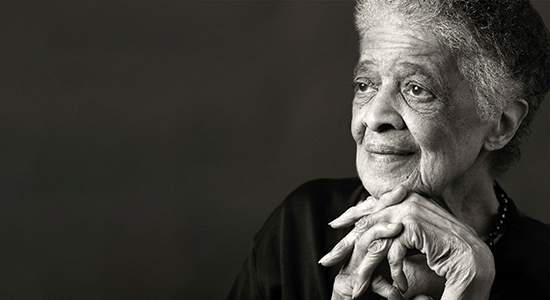
Photo: Wisconsin Public Television, used with permission.
Vel Phillips was the first woman lawyer I ever met.
I was 16, and working on a lit drop for JFK out of the law office Vel shared with her husband in Milwaukee’s inner city. She was also the first female elected official (Milwaukee Common Council, and later judge, and Wisconsin Secretary of State) that I ever met, and perhaps the first person of color I got to know well.
After many years of working with her on legal matters, on political campaigns, on feminist projects, and of driving her various places (Vel didn’t drive), almost 20 years ago the two of us spent about a year trying to put together her autobiography. But Vel’s presence was in demand at many meetings and lunches and conventions, even as she continued to practice, and so we only finished three chapters before our funding was cut and Vel decided to let the project drop. (I still have those three chapters on my computer – I kept hoping she might want to continue with her fascinating life story.)
We shared a love of the English language, and a “voice” that probably came of both of us having been educated in Milwaukee public schools, having taken Latin, and having practiced law – we would look at a draft sentence, say, “That’s not right,” and both come up, at the same time, with the same alternative wording.
One of my favorite memories is of Vel, bedecked in all kinds of brass badges as Wisconsin National Committeewoman at the 1964 National Democratic Convention, giving us, the six state pages, a ride to the convention hall in the Governor’s limousine. We were sharing three sets of credentials among the six of us, so there was no way all of us could be in the convention hall at the same time. But Vel packed us all into the limo with her and had us driven through the underground VIP drive-through entrance. When we were stopped for a credential check, in that car with Wisconsin license plate number 1, she just rolled down the window, flashed all that brass, and said sweetly, “Is there a problem, Officer?” They waved us in, and for that night – the night of the RFK speech and the JFK memorial movie – we were all on the convention floor together.
Vel was a woman of steel – she had to be to accomplish all she had when she did – in a tiny, stylish guise. She was one of a kind, an inspiration to those of us who came after her, and I shall miss her. RIP, Vel.
Ellen Kozak
Kozak Law Offices, Milwaukee
[Editor’s Note: For another tribute to Vel Phillips, please see the Final Thought column in this issue.]
We Want to Hear from You! Submit a Letter to the Editor
Wisconsin Lawyer provides a forum for members to express ideas, concerns, and opinions on law-related subjects. Send comments to wislawyer@wisbar.org (include “Letters” in the subject line), or mail to Wisconsin Lawyer “Letters,” P.O. Box 7158, Madison, WI 53707-7158. Limit to 500 words. Writing guidelines available.
Connect With Us Online. Post comments to articles
online, and find us on Facebook, Twitter, and LinkedIn.
Owning the Problem, Looking for Solutions
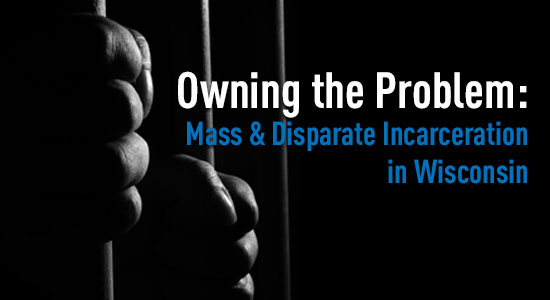
In “How Did We Get Here? Wisconsin’s Mass and Disparate Incarceration” (Wisconsin Lawyer, April 2018), Mary Prosser and Shannon Toole wrote, “At a time when many states are reducing their prison populations and racial disparities, Wisconsin’s continue to grow.” Wisconsin incarcerates non-white persons at far higher rates than whites and at rates of disparity far above the national average.
The Wisconsin Department of Corrections’ proportion of the state budget has increased substantially. Yet, the DOC still faces staffing challenges, ballooning costs arising from an increasingly older and sicker population, and calls for programming that it cannot meet with the resources it currently receives.
This article – the first in a series looking at issues surrounding Wisconsin’s mass and disparate incarceration – takes stock of how Wisconsin moved to this point over the past several decades and what our current circumstances are.
A reader wrote in.
Reader: I am pleased to be writing this letter. I am proud of Wisconsin for allowing the proposed new-prison bill to die in the legislature without a vote. In addition, the State Bar of Wisconsin is printing a series of articles on the disgrace of our discriminatory, overpopulated prisons. Congratulations. I realize there will be more articles in the future, I only wish to add a few comments.
Here is a brief history. About 20 years ago, the State Bar of Wisconsin did a study of our sentencing. It discovered that African-American males were given disproportionately harsh sentences. The study stopped. Nothing was done. In 2014, a Wisconsin university did the same study with the same results. In 2016, Wisconsin earned the distinction of being the worst state in the United States for African-American males to live in. Only New Jersey has a slightly higher percentage of African-American males incarcerated. Wisconsin beat Mississippi and every other state.
The United States has gone on a prison binge. We have the greatest percentage of incarcerated people in the world. We have slightly more than 4 percent of the world’s population and more than 20 percent of the world’s incarcerated people. During the height of Stalin’s purges, Russia [then the Soviet Union] had a lower percentage of incarceration.
Cities lobby to be the site of a new prison. Prisons create jobs for a state in which unskilled manufacturing jobs have been lost to automation. Prisons in Wisconsin are a Works Progress Administration project [WPA, a depression-era jobs program]. Those who would otherwise be unemployed are guards, prison employees, or prisoners. We apparently have public money to over-incarcerate. Why not hire people to provide better public transportation or fix our roads or install security in our public schools?
Here are a few suggestions for future articles. Minnesota does not revoke for crimeless rule violations. Wisconsin does. The majority of our revocations are for rule violations. We also have hearing examiners instead of judges deciding revocations. Hearing examiners do not exercise discretion. If the boxes are checked, they revoke. Easy revocations are a major part of our problem.
Wisconsin had discriminatory sentencing before truth-in-sentencing. After truth-in-sentencing, the sentences became harsher and the discrimination became worse. We must end truth-in-sentencing. The State Bar should monitor sentencing for discrimination, and this time we must take steps to stop it.
The hardest issue to deal with is discriminatory police practices.
Discriminatory over-incarceration is entwined in our economic system. It has no positive effect on our crime rate, but many good-paying public jobs will be lost when we change. I congratulate the State Bar of Wisconsin for bringing this difficult issue into the light. As the article noted, it will be hard to change.
Nancy Barasch
Kenosha
Legislation That Could Affect Your Practice

In “Legislative Wrap-Up: 21 Bills That Could Impact Your Practice, Your Clients” (WisBar InsideTrack, April 4, 2018), Joe Forward wrote, “From tort reform to landlord-tenant law, from criminal law to labor and employment law, learn how recent legislative changes may impact your practice, and your clients.”
The overview provides a starting place on the issues each bill addresses. Forward noted that lawyers should do an independent review of bills of interest to fully understand the impact of legislative changes.
Additionally, the article only addresses selected bills the State Bar of Wisconsin, State Bar sections, or other law-related groups followed, or that may be of broad interest, that made it into law. It also looked at a few bills that failed.
Readers posted comments.
Reader: AB 629 [relating to the adoption of the Uniform Adult Guardianship and Protective Proceedings Jurisdiction Act], which is now 2017 Wis. Act 187, became effective on April 5, 2018. It created a whole new chapter in the Wisconsin Statutes. All guardianships filed on or after that date must comply with Wis. Stat. chapter 53 in addition to the requirements of chapter 54, and when applicable, chapter 55. It is important to note that [as of April 6] the court forms have not been updated, revised, removed, or created to address the new law. At least 10 forms, by my count, are affected.
This article notes that the Elder Law Section supported this bill. I was one of the members of the section who worked on the committee to review and make recommendations for the sponsoring legislators. I feel that not enough time was provided to address the forms issue, due process protections for wards, and how this new chapter should interrelate with chapters 54 and 55. Years were spent on creating chapters 54 and 244 before those bills were ready to be introduced in the legislature. We had a few months – a few meetings – to review AB 629 and discuss recommendations before it was introduced in the legislature.
If you practice in guardianships, read and understand chapter 53, because it applies to all new guardianships now. Make sure whatever form you are using complies with the requirements of chapter 53, if it applies to your case.
Peter M. Navis
Walworth County Office of Corporation Counsel
Reader: Thank you, Joe, for a good job in summarizing these important bills affecting our profession.
As the attorney for the Apartment Association of Southeast Wisconsin, I testified before Assembly and Senate committees in support of AB 771 regarding landlord-tenant law. Your article mentions State Bar opposition to the following provision in the bill:
The State Bar’s Public Interest Law Section opposes this legislation, in part because it includes a provision requiring attorneys that assist self-represented parties in preparing pleadings in eviction cases to sign their name and bar number of those documents.
It is important to note that this provision does not require volunteer attorneys to become counsel of record for a tenant. In cases where the attorneys use their own form pleading or have the tenant submit a “check the box” preprinted Answer to an eviction (with 32 distinct defenses as used by the Eviction Defense Project run by Legal Action in Milwaukee County) the name of the attorney should be disclosed. This is even more necessary when the volunteer attorney then actually goes on the record before the judge or court commissioner (as I have often observed) and argues on behalf of the tenant.
Finally, we have a strong open government and open records tradition in Wisconsin. Why should attorneys be excused from standing behind a meritorious defense that they (not the tenant!) have drafted and upon which they now present oral argument?
Heiner Giese
Giese Law Offices, Milwaukee
Reader: In the category of important bills that “failed,” also included should be SB 665, the workers’ compensation “Agreed Bill.” This will be only the second time in history (but the second time in the last four years) that the Advisory Council’s “Agreed Bill” was not enacted into law.
John Edmondson
Edmondson Law Office, Appleton
Motivated to Preserve Indian Culture
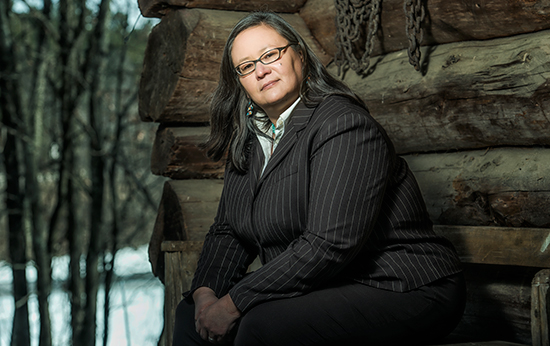
In “Toni Caldwell: Preserving Menominee Indian Culture” (Wisconsin Lawyer, April 2018), Toni Caldwell described how, as a tribal attorney for the Menominee Indian Tribe of Wisconsin, she uses her legal skills in a wide variety of areas in tribal, state, and federal courts. She described her path to becoming a lawyer, changes over the years in the tribal community, and her deep commitment to preserving Menominee values and culture and becoming a certified Menominee language teacher.
A reader commented.
Reader: Thank you for this article! It displays the type of diversity we have in the legal profession, but is rarely talked about. Our state has 11 federally recognized tribes that are unique and everlasting. Accolades to Toni Caldwell for balancing the practice of law while studying to preserve the Menominee culture.
Kris Goodwill
Wisconsin Department of Transportation, Superior
Reflecting a Passion for Zealous Representation and Civility
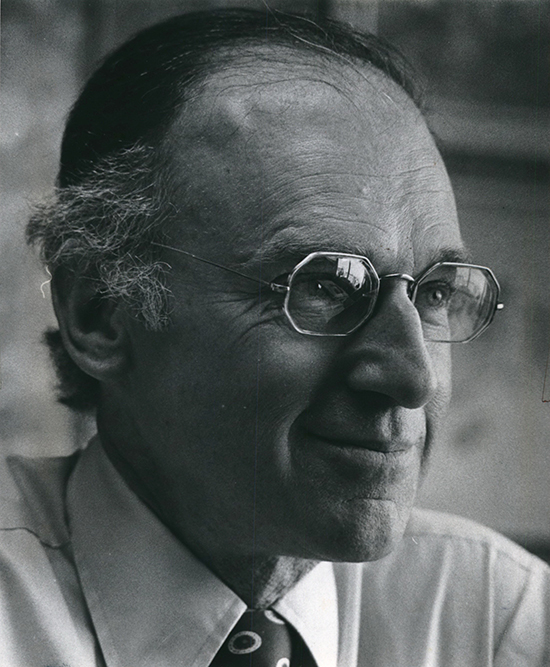
From school desegregation and civil rights cases to Indian treaty rights to environmental protection matters, Irv Charne’s professional success reflected a passion for zealous representation coupled with unwavering civility.
In “Irvin B. Charne: Living Up to His Light” (Wisconsin Lawyer, March 2018), Art Harrington and Howard Pollack testified to Irv’s outstanding career. Typical of him, they wrote, “Irv had once cross-examined an opposing party in his customary soft-spoken manner. When he was finished, the party boasted to his lawyer that he had gotten the best of Irv, to which the lawyer responded: ‘You may not know it, but he just destroyed your case.’”
Irv passed away in January.
Reader: A great tribute to Irv – a great lawyer. I was privileged to know Irv – and others of the “greatest generation.” My first recollection of Irv was riding to the Seventh Circuit Bar Meeting in Chicago in the spring of 1970. I was in the back seat, Irv was driving, and one of his best friends in life, Tom Fairchild, was on the passenger’s side.
The two shared common strengths: kindness, mutual respect, integrity, modesty, understatement, courage, and fairness – not to mention brilliance, judgment, and absolute competence. It is well worth reminding the “next” generation(s) that real lawyers like Irv and Tom succeeded without self-promotion, bullying, and bombast – and that the public and the profession – and our country – was the better for it and will in the future be the better for it if that is the way we all try to practice.
Irv and Tom were co-recipients of the American Inns of Court Foundation’s Seventh Circuit Professionalism Award in 2001.
John Skilton, Past State Bar President
Perkins Coie LLP, Madison
When People Doubt You’re the Lawyer in Charge

In “Are You the Court Reporter?” (Wisconsin Lawyer, March 2018), Deanne Koll wrote that despite comprising more than one-third the State Bar of Wisconsin’s membership, women often are greeted with disbelief when they self-identify as lawyers.
Koll said she would have to take off her shoes and socks to accurately count the number of times she’s shown up at a deposition and been asked, “Are you the court reporter?” If she wanted to, she could accept this as a compliment. She doesn’t. Instead, she gets irritated that “there is not one male attorney in Wisconsin who has had this question asked of him when arriving for a deposition.”
She says, “You develop a sort of edge when you don’t get the benefit of the doubt that you’re the lawyer in charge.” Boy, did she hit a nerve!
Reader: I once went to a hospital to depose a doctor and after introducing myself to a receptionist as Attorney Amy Wilkinson, she announced that the court reporter had arrived. After I corrected her and reiterated that I was the attorney, she attempted to redeem herself by saying, “But you are too young and pretty to be an attorney.” She didn’t realize that she had insulted my entire profession by implying that all attorneys are old and ugly.
Amy Uhlenbrauck Wilkinson
Secura Insurance, Appleton
Reader: My law school class in 1993 was the first class in U.W. Law School history that graduated more women than men. This should be dead by now. Sadly it’s not. The faster we kill this mindset, the better. Law should not be a “male dominated industry.”
Erik Pless
Everson, Whitney, Everson & Brehm SC, Green Bay
Reader: I just wanted to thank you for writing such an insightful piece. As a female attorney, I appreciate that you have opened the conversation publicly. It is, in fact, a frequent conversation in my office, where I am the only female attorney.
There was one point that you did not make that I find particularly frustrating. Many times there are women who project the same sexist reactions to female attorneys. For instance, I recently attended a deposition for a case that I am second chair on. When I arrived, the female receptionist immediately said that the court reporter had already arrived so I was not needed. I then explained that I was there to represent one of the parties. She said, “No. Davie Piehler represents that party.” I then had to explain that I am Dave’s associate.
It was incredibly awkward and just as frustrating as when male attorneys make the same assumption.
Alyson D. Dieckman
Piehler & Strande S.C., Wausau
Reader: I read your Final Thought column and it brought up some thoughts of my own. I was one of those women attorneys 30 years ago; I graduated law school in 1988. I was a litigator and loved it. I did not feel oppressed or inferior. Few of us did until people started talking about how we were supposed to be constantly feeling slighted. As a new associate, I was paid the same as my male counterparts, and I had just as much responsibility. Judges may have been more polite to me but did not listen any less intently to me.
Once a male lawyer chided me for pouring coffee at a deposition because women lawyers shouldn’t if they wanted to be respected, but I always thought that said more about his manners than my presumed fragile opinion of my glass ceiling. As a law clerk, I do recall being perturbed that a male clerk got much more attention from the senior partner, but that was because that partner wanted to play tennis with a collegiate tennis player; I’m sure if I had played at that level the partner would have played tennis with me at lunch, too. Yes, sure, occasionally I was asked whether I was a court reporter, but that was their problem, never mine.
It’s probably out of today’s norm to say, but I really dislike being labeled as a female lawyer, as though it’s something different from everyone else with a law degree. I guess it’s a matter of perspective. I will admit that I have actually enjoyed seeing the additional respect I receive when people learned of my credentials. Mom always told me never to concern myself with how others viewed me; how I viewed myself is what counts. If you surprise them with your skills and credentials, embrace it. Don’t get bent out of shape; be proud of your accomplishments instead.
I appreciate that you stand on my shoulders, but it’s more important to be comfortable standing on your own two feet. Some unsolicited advice from this older lawyer; don’t give in to the pressures of your generation to focus on your gender or background or any other segmenting category. Focus on being the best (no qualifier here) lawyer you can be. Choose great lawyers for your role models regardless of whether they are women or men. Work hard and be strong in your own right. I wish you all the best in your legal career.
Lorna (Rory) Hemp Boll
Wisconsin Tax Appeals Commission, Madison
Reader: Amen, sister! At this point, I find great amusement in the looks on strangers’ faces when I tell them I’m a lawyer … or that I’m a three-time presenter for the national conference of the American Association of Individual Investors.
My husband owns a martial arts academy and when I’m with him at one of his events, I often get, “So do you stay home with your daughter, or do you help out at the academy?”
Dera Johnsen-Tracy
Horn & Johnsen SC, Madison
Reader: With regard to Attorney Koll’s March article, based on my 55 years of legal practice, being “feisty” is not an admirable trait for a lawyer, notwithstanding the extent of “gender assumptions in the legal field.”
Russ R. Mueller
Russ R. Mueller Law Office, Glendale
Sometimes a Winner Isn’t ‘the’ Winner
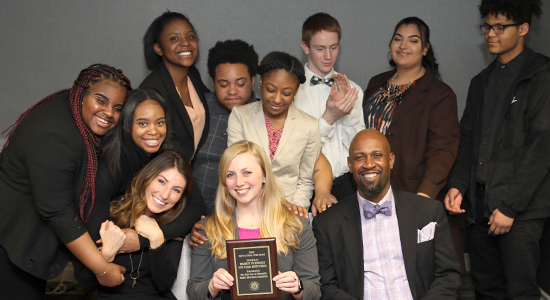
In “In the Spirit of Mock Trial: Competing Through Adversity” (WisBar InsideTrack, March 21, 2018), Shannon Green wrote, “Milwaukee’s Bradley Tech high school mock trial team didn’t win the state competition earlier this month, or make it to the semifinals. Yet the team is, without a doubt, a winner in everyone’s book.”
Early in the morning of Feb. 10 – the day after a significant snowstorm hit Milwaukee – an attorney-coach driver, with three team-member passengers, was struck by another vehicle while heading to the courthouse for four rounds of regional competition. One student suffered a broken jaw and ended up in surgery that day.
Rather than forfeit, the team kept it together, competing through all four rounds. The team’s efforts were recognized with the Spirit of Mock Trial Award, and a reader comment.
Reader: It’s clear that the Bradley Tech team and coaches already know what it means to dedicate yourself to a cause and to carry on no matter what life throws at you. What wonderful examples for us all – they are indeed winners, and I see a bright future ahead for them!
Kathryn Bullon
Deerhaven Consulting Services, Sombra, Canada
